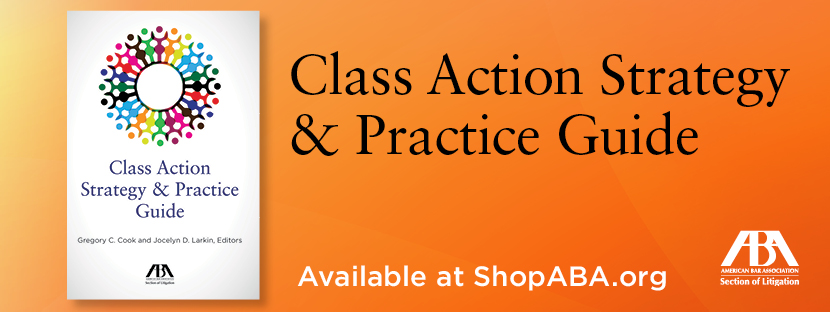
PRACTITIONER BLOG
Read our analyses of developments in Impact Litigation and stay current on class action law

Uninjured Class Members - How Many Is Too Many? Ninth Circuit Weighs In On Class Action Article III Standing
So how exactly does Article III work in a class action? It is generally understood that, at the outset of a class action, Article III standing is determined based on the claims of the named plaintiffs. At the tail end, if the case goes to judgment, unnamed class members must prove an Article III injury in order to receive damages. But what about in the middle of the case? What about at class certification?

Ninth Circuit Rules on Article III Class Action Standing in Favor of Plaintiffs in Ramirez v. TransUnion
Given the issues, I expect the defendant will be filing en banc and cert petitions. While the buzz on the case is on punitive damages, I think the Article III standing issues will be the heart of future disputes. The first piece of good news is that the facts in the case are very sympathetic for the plaintiffs, which will be helpful going forward. In brief, TransUnion incorrectly placed terrorist alerts on the front page of consumer credit reports for approximately 8000 individuals.

Class Action Strategy and Practice Guide: A Must-Have For All Class Action Attorneys
Class actions involve decisions on strategy at every turn. The positions of the parties are constantly changing and counsel must always be looking ahead and, at the same time, carefully watching their flank. This book helps all practitioners and parties identify, analyze and answer key strategy questions. Ever evolving class action tactics, case law and rule make this insightful practice guide a must read for lawyers, judges, advocates and decision makers at every level.

Why “Ascertainability” in Class Actions Matters: How a Kiddie Pool Could Threaten Workers’ Rights in California.
The heightened and burdensome standard for ascertainability articulated by Sotelo and applied in Noel v. Thrifty Payless, Inc. will prevent meritorious employment class actions and undermine workers’ rights. This result is at odds with California’s strong public policies favoring the class mechanism and the robust enforcement of workers’ rights.

A question for Microsoft: How many #MeToo’s does it take?
Sworn statements explained how women at Microsoft are undervalued in comparison to men, are denied opportunities that men receive, are left out of important meetings, and work in a sexualized environment in which male employees stare at women’s breasts, grope them, and comment on their bodies and clothes. One woman explained the pressure that she and other women feel to “hit the sweet spot between being perceived as ‘too timid’ or ‘overly passionate’ and ‘too harsh’ in Microsoft’s male-dominated culture.” Her male manager lowered performance ratings for her and the team of women she supervised because he believed they did not “smile enough.”
